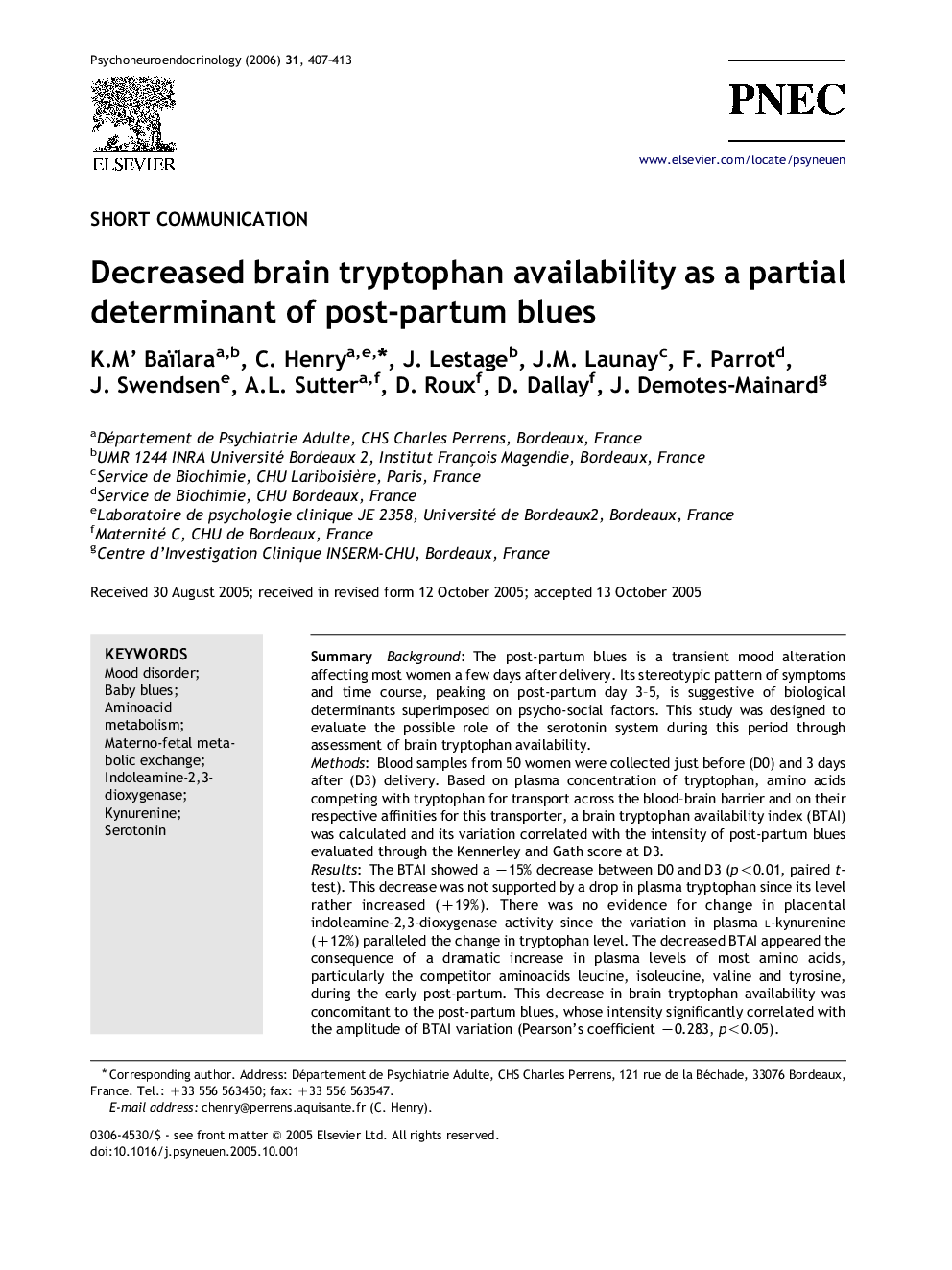| کد مقاله | کد نشریه | سال انتشار | مقاله انگلیسی | نسخه تمام متن |
|---|---|---|---|---|
| 337546 | 547554 | 2006 | 7 صفحه PDF | دانلود رایگان |

SummaryBackgroundThe post-partum blues is a transient mood alteration affecting most women a few days after delivery. Its stereotypic pattern of symptoms and time course, peaking on post-partum day 3–5, is suggestive of biological determinants superimposed on psycho-social factors. This study was designed to evaluate the possible role of the serotonin system during this period through assessment of brain tryptophan availability.MethodsBlood samples from 50 women were collected just before (D0) and 3 days after (D3) delivery. Based on plasma concentration of tryptophan, amino acids competing with tryptophan for transport across the blood–brain barrier and on their respective affinities for this transporter, a brain tryptophan availability index (BTAI) was calculated and its variation correlated with the intensity of post-partum blues evaluated through the Kennerley and Gath score at D3.ResultsThe BTAI showed a −15% decrease between D0 and D3 (p<0.01, paired t-test). This decrease was not supported by a drop in plasma tryptophan since its level rather increased (+19%). There was no evidence for change in placental indoleamine-2,3-dioxygenase activity since the variation in plasma l-kynurenine (+12%) paralleled the change in tryptophan level. The decreased BTAI appeared the consequence of a dramatic increase in plasma levels of most amino acids, particularly the competitor aminoacids leucine, isoleucine, valine and tyrosine, during the early post-partum. This decrease in brain tryptophan availability was concomitant to the post-partum blues, whose intensity significantly correlated with the amplitude of BTAI variation (Pearson's coefficient −0.283, p<0.05).ConclusionThis study suggests that generalized, large amplitude metabolic and/or nutritional changes occurring in the early post-partum result in a transient decrease in brain tryptophan availability, partly accounting for the mood alteration referred to as the post-partum blues, a model for the triggering of puerperal mood disorder in vulnerable women.
Journal: Psychoneuroendocrinology - Volume 31, Issue 3, April 2006, Pages 407–413